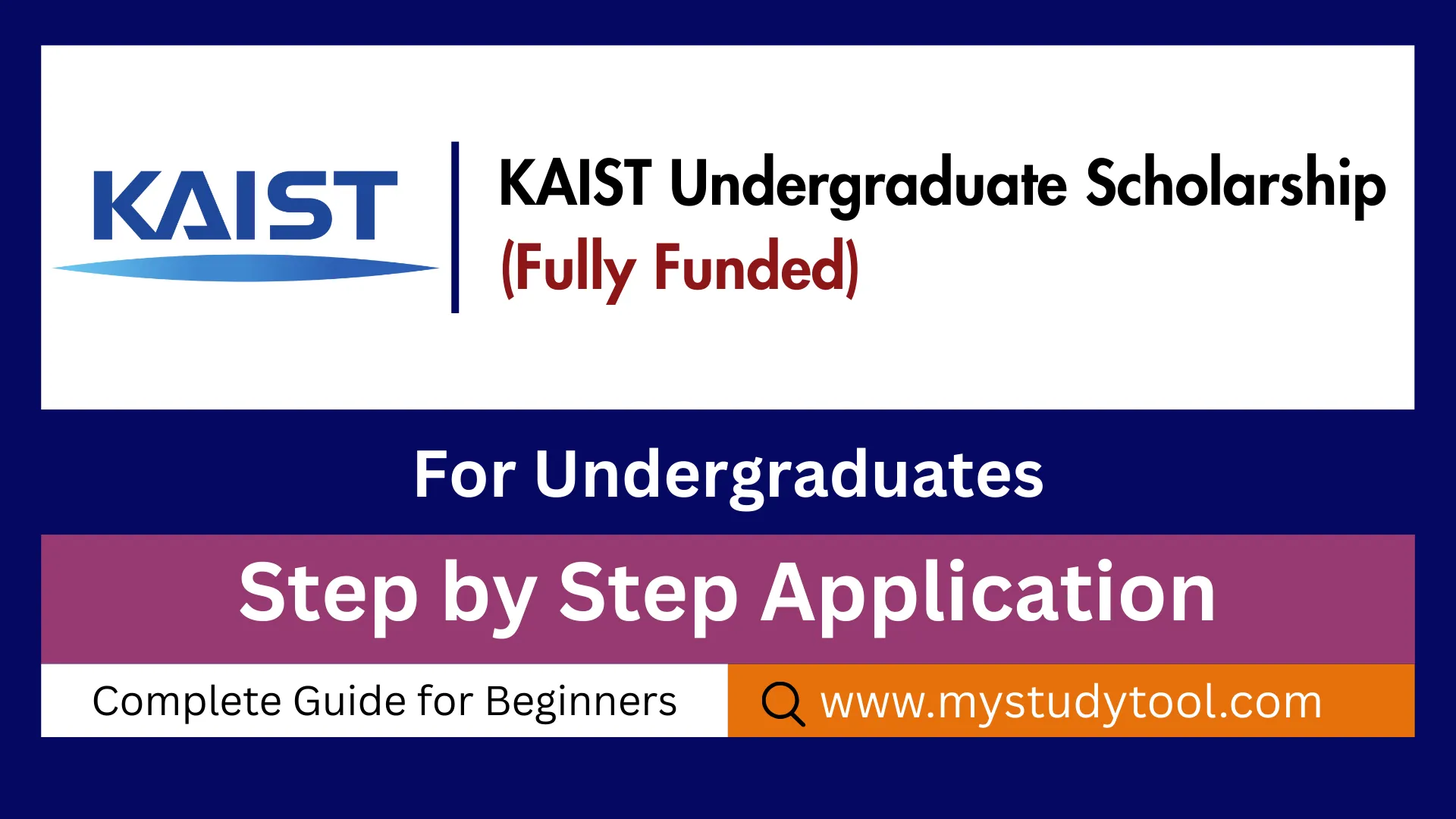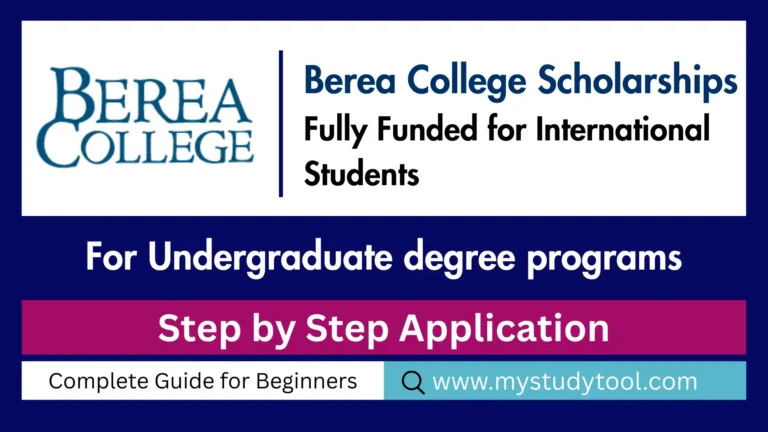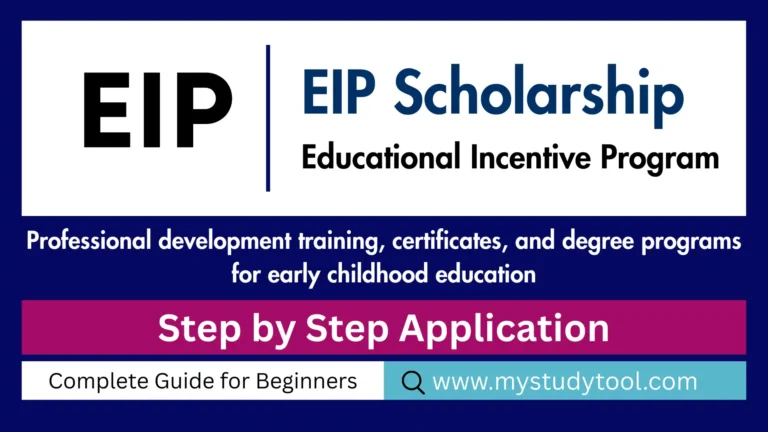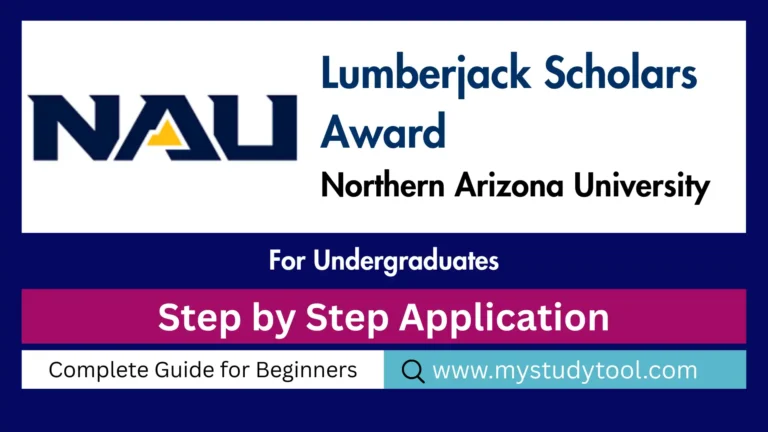The Korea Advanced Institute of Science and Technology (KAIST) is South Korea’s most prestigious science and technology university, consistently ranking among the top institutions in Asia. What makes KAIST even more attractive? Their comprehensive KAIST Undergraduate Scholarship program covers everything from tuition fees to living expenses, making world-class education accessible to international students.
KAIST recruits passionate and extraordinary talents who enjoy exploring knowledge and seeking collaborative and ethical minds whose new knowledge creation will contribute to benefiting global society. If you’re a high-achieving student with a passion for science, technology, engineering, or mathematics, this scholarship could be your gateway to an exceptional education in one of Asia’s most innovative academic environments.
Here’s what you need to know about securing this life-changing opportunity. I’ve guided hundreds of students through competitive scholarship applications, and honestly, KAIST’s program is one of the most comprehensive I’ve encountered. Let’s break down everything you need to succeed.
Also read: Simmons University Kotzen Scholarships 2026 (Fully Funded)
Scholarship Overview
The KAIST Undergraduate Scholarship represents one of South Korea’s most generous educational funding opportunities for international students. Here are the essential details:
- Academic Level: Undergraduate (Bachelor’s degree programs)
- Host Institution: Korea Advanced Institute of Science and Technology (KAIST)
- Country: South Korea
- Duration: Full undergraduate program (typically 4 years)
- Language of Instruction: English (no Korean language requirement)
- Program Type: Fully funded scholarship covering tuition, living expenses, and additional benefits
- Application Tracks: Regular track and Early track available
- Intake Periods: Spring semester (March) and Fall semester (September)
Available Programs and Majors at KAIST
KAIST offers undergraduate programs across four main colleges, each designed to prepare students for leadership in science, technology, and innovation. Here’s what you can study with your scholarship.
College of Natural Sciences:
- Physics – Fundamental research in theoretical and experimental physics
- Mathematical Sciences – Pure and applied mathematics with computational focus
- Chemistry – Chemical research with applications in materials and biotechnology
College of Life Science & Bioengineering:
- Biological Sciences – Modern biology with emphasis on molecular and cellular research
College of Engineering:
- Mechanical Engineering – Advanced manufacturing, robotics, and energy systems
- Aerospace Engineering – Aircraft and spacecraft design and propulsion systems
- Electrical Engineering – Electronics, communications, and power systems
- Computer Science – Software engineering, artificial intelligence, and cybersecurity
- Civil & Environmental Engineering – Infrastructure development and environmental solutions
- Bio & Brain Engineering – Biomedical devices and neural engineering
- Industrial Design – Technology-focused product and service design
- Industrial & Systems Engineering – Operations research and system optimization
- Chemical & Biomolecular Engineering – Process engineering and biotechnology
- Materials Science & Engineering – Advanced materials for technology applications
- Nuclear & Quantum Engineering – Nuclear technology and quantum systems
College of Business:
- Business and Technology Management – Entrepreneurship and technology commercialization
Each program combines rigorous academic training with hands-on research opportunities. Students work directly with faculty on cutting-edge projects from their first year.
Also read: Saudi Arabia Government Scholarships 2026 (Fully Funded)
KAIST Undergraduate Scholarship Coverage
This isn’t just a tuition waiver – it’s a comprehensive support package designed to ensure your academic success. The KAIST Undergraduate Scholarship covers every major expense you’ll encounter during your studies.
- Full tuition fees: Complete coverage of all academic fees throughout your undergraduate program
- Monthly living allowance: Stipend up to 350,000 KRW (approximately $260-280 USD) to cover accommodation, food, and personal expenses
- Medical insurance: Comprehensive health coverage during your studies
- Dormitory accommodation: On-campus housing with modern facilities
- Research opportunities: Access to cutting-edge laboratories and research projects
- Career development support: Internship programs and industry connections
- Airport pickup service: Transportation assistance upon arrival
- Orientation programs: Comprehensive integration support for international students
Also read: HEC Overseas Scholarships 2026 (Fully Funded)
Eligibility Criteria for KAIST Undergraduate Scholarship
Meeting the basic requirements is just the starting point – successful applicants typically exceed these minimums significantly. What I’ve noticed over the years is that competitive candidates often have achievements that go well beyond the stated criteria.
To be eligible for the KAIST Undergraduate Scholarship, you must meet the following criteria:
- Citizenship requirement: International students only (Korean citizens, including dual citizens, are not eligible for international student scholarships)
- Academic excellence: Outstanding high school academic record with top-tier grades (typically top 5-10% of graduating class)
- Graduation timing: Must have completed or will complete high school by the application deadline
- English proficiency: English proficiency test scores must be valid for 2 years, including the application due date
- STEM aptitude: Strong background and demonstrated interest in science, technology, engineering, or mathematics
- Application completeness: All required documents submitted by the deadline through the official online portal
- Character assessment: Strong personal character, leadership potential, and research interest
Also read: Chinese Government Scholarship 2026 for International students
Required Documents for KAIST Undergraduate Scholarship
The documentation process requires careful attention to detail and early preparation. Start gathering these materials at least three months before your intended application deadline.
- Official academic transcripts: Complete high school records with official school seal and signatures
- High school diploma or graduation certificate: Original or certified copies
- English proficiency test scores: TOEFL iBT 83+ or equivalent (IELTS, PTE accepted)
- One recommendation letter: From academic advisor, homeroom teacher, or math/science teacher (submitted online only)
- Secondary school profile: Information about your high school’s academic standards and grading system
- Personal statement: Detailed essay explaining your academic goals, research interests, and career aspirations
- Passport copy: Valid passport with at least two years remaining validity
- Statement of financial resources: Documentation for scholarship application
- Standardized test scores: SAT, ACT, or equivalent (if available – not mandatory)
- Honors and awards: Certificates of academic achievements, competitions, or recognitions (optional but recommended)
- Medical examination results: A Health clearance certificate may be required after admission
Also read: Required Scholarship Documents: 47 Must-Have Documents
How to Apply for KAIST Undergraduate Scholarship
The application process is comprehensive for the KAIST Undergraduate Scholarship, but straightforward if you follow each step carefully. Actually, let me walk you through this exactly as I guide my students.
- Complete online application: Visit the official KAIST application portal.
- Pay application fee: Approximately USD 80 via credit card or bank transfer (non-refundable)
- Upload required documents: Submit all materials through the online platform – physical copies not accepted.
- Submit recommendation letter: One academic recommendation via online system (teacher receives automatic email with submission link)
- Monitor application portal: Track application status and check for any additional requirements.
- Verify document submissions: Ensure all uploaded documents are clear, legible, and properly certified.
- Await admission decision: Results announced according to the official timeline on the admissions website.
- Contact support if needed: For technical issues, contact the Undergraduate Admissions Team.
Also read: Monash University Scholarship 2026 | Fully Funded
Application Deadline for KAIST Undergraduate Scholarship
Important Note: Application deadlines and schedules for 2025 are announced on the official KAIST admissions website. Based on previous years’ patterns:
Early Track (Spring Admission):
- Application Period: Typically September-October (check official site for exact dates)
- Eligibility: Candidates who have graduated or will graduate by February of the admission year
Regular Track (Fall Admission):
- Application Period: Typically November-January (check official site for exact dates)
- Eligibility: Candidates who have graduated or will graduate by August of the admission year
Application Fee: Approximately USD 80 or equivalent in KRW (payable by credit card or bank transfer)
Here’s the thing about deadlines – they’re non-negotiable. I’ve seen brilliant students miss opportunities simply because they submitted applications one day late. Mark these dates in your calendar and aim to submit at least one week early.
Also read: Gates Cambridge Scholarship 2026 for International Students
Official Website
For the most current information, application forms, and detailed program descriptions, visit the official KAIST admissions website. This is your authoritative source for all updates and changes to the scholarship program.
Apply for KAIST Undergraduate Scholarship
The official website contains detailed information about specific programs, faculty research areas, campus facilities, and student life. I recommend spending significant time exploring the site to understand which programs align best with your interests and career goals.
What I’ve learned from years of helping students with competitive scholarships is this: success comes from thorough preparation, genuine passion, and clear communication of your goals. The KAIST Undergraduate Scholarship isn’t just about academic achievement – they’re looking for future innovators who will contribute to solving global challenges.
Start your preparation early, be authentic in your application, and don’t let the competitive nature discourage you. Every successful KAIST scholar started exactly where you are now, with determination and a clear vision of their future in science and technology.
Frequently Asked Questions
Is the Korean language required for KAIST undergraduate programs?
No, the Korean language is not required. All undergraduate programs at KAIST are taught in English. You don’t need to speak or understand Korean to study there. However, learning basic Korean can help with daily life in South Korea.
How much money does the KAIST scholarship provide monthly?
The KAIST scholarship provides a monthly allowance of up to 350,000 KRW (approximately $260-280 USD). This amount covers your living expenses, including food, transportation, and personal needs. The exact amount may vary based on your program and year of study.
Can I apply for the KAIST scholarship if I’m already in university?
Yes, you can apply if you’re currently a university student. However, you must be applying for admission to KAIST’s undergraduate program. The scholarship is for new students starting their bachelor’s degree at KAIST, not for transfer credits.
What GPA do I need for the KAIST undergraduate scholarship?
KAIST doesn’t publish a minimum GPA requirement. However, successful applicants typically have outstanding academic records with top grades in high school. Most admitted students rank in the top 5-10% of their graduating class.
Do I need to take the SAT or other standardized tests?
KAIST doesn’t specifically require SAT, ACT, or other standardized tests. However, you must provide proof of English proficiency through TOEFL, IELTS, or equivalent tests. Strong standardized test scores can help your application, but aren’t mandatory.
How competitive is the KAIST undergraduate scholarship?
The KAIST scholarship is extremely competitive, with thousands of international applicants competing for limited spots. The acceptance rate for international students has decreased over recent years as more foreigners apply to KAIST, making competition more intense. Strong academic records, research experience, and exceptional achievements significantly improve your chances of success.
When do KAIST scholarship applications open each year?
KAIST typically offers two admission periods annually. The Early Track usually opens in September-October for spring admission, while the Regular Track opens in November-January for fall admission. However, exact dates vary each year and are announced on the official KAIST admissions website. Always check the current year’s specific timeline before applying.
What majors can I study with the KAIST undergraduate scholarship?
You can choose from all undergraduate programs at KAIST. Popular options include Computer Science, Electrical Engineering, Mechanical Engineering, Chemical Engineering, Physics, Mathematics, and Biological Sciences. All programs focus on science, technology, engineering, and mathematics.
Can international students work while studying at KAIST?
Yes, international scholarship students can work part-time with proper permits. You can work up to 20 hours per week during the semester and full-time during breaks. However, your scholarship already covers living expenses, so working is optional.
What happens if I don’t maintain good grades during my studies?
You must maintain satisfactory academic performance to keep your scholarship. KAIST monitors your grades each semester. If your performance drops significantly, you may lose scholarship benefits. The university provides academic support to help you succeed.







